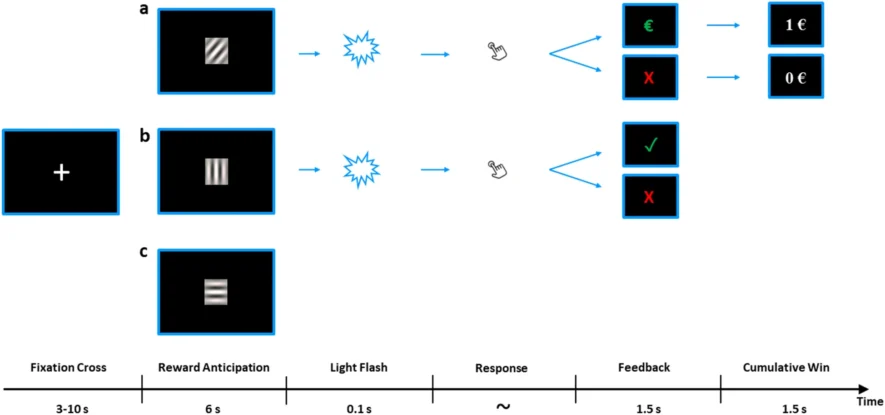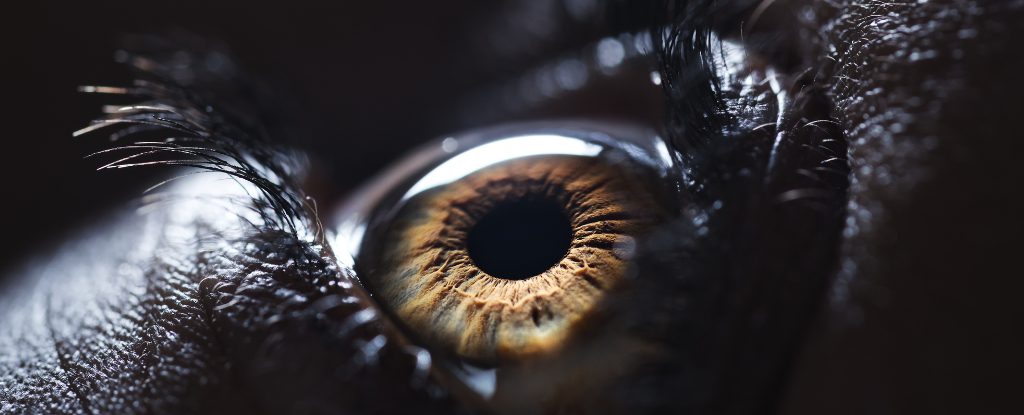When money is dangled in front of our eyes, the reward pathways in our brains usually light up, and within about six seconds, our pupils widen in anticipation.
But that feeling of reward anticipation – and the accompanying pupil dilation – is missing in many people with clinical depression, a new study shows.
The more symptoms of listlessness people reported, the less their pupils dilated when they were offered the chance to win a €1 reward.
“The reduced pupil reaction was particularly noticeable in patients who could no longer feel pleasure and reported a loss of energy,” says first author and data scientist Andy Brendler.
Pupil dilation is part of the nervous system’s response to stress or excitement. It’s triggered when part of the brainstem called the locus coeruleus produces the neurotransmitter norepinephrine.
In people with depression who experience anhedonia – feelings of emotional dullness and lack of joy – a lack of pupil dilation could suggest that this reward circuit in the brain has been affected.
“This finding helps us to better understand the physiological mechanisms behind listlessness,” says senior author Victor Spoormaker, a psychologist and researcher at the Max Planck Institute of Psychiatry in Germany.
In Brendler and team’s new study, 40 people with unmedicated depression and 31 healthy people completed 30 trials of three different tasks on a computer. At the same time, their pupil size was measured using an eye tracker inside an MRI machine.
During each task, the computer screen would signal whether there was the possibility of a financial reward using images, and then prompt the participant to respond following a flash of light. When the person was at their fastest, the computer screen would display the €1 reward.

Around one in ten people worldwide experience depression, but there are no approved biomarkers for the disease. It is usually diagnosed using a behavioral assessment.
Eye tracking could be useful as a clinical test to classify people with depression into subgroups or to monitor their response to treatments, report the researchers.
In a 2018 study of 46 humans without a diagnosis of depression, the same research group found that anticipation of a monetary reward consistently made the participants’ pupils dilate.
Importantly, the latest findings provide a valuable replication of the team’s 2020 study involving 41 people with unmedicated depression and 25 healthy people, with their newest paper bringing the combined sample to 136.
Confidence in psychology research has fallen in recent years, where study results have often not been reproduced. By demonstrating that their findings can be replicated, the authors say they are directly addressing this issue and thereby boosting confidence in their results.
This paper was published in Scientific Reports.
If this article has raised concerns or you need to talk to someone, here’s a list where you may be able to find a crisis hotline in your country.





